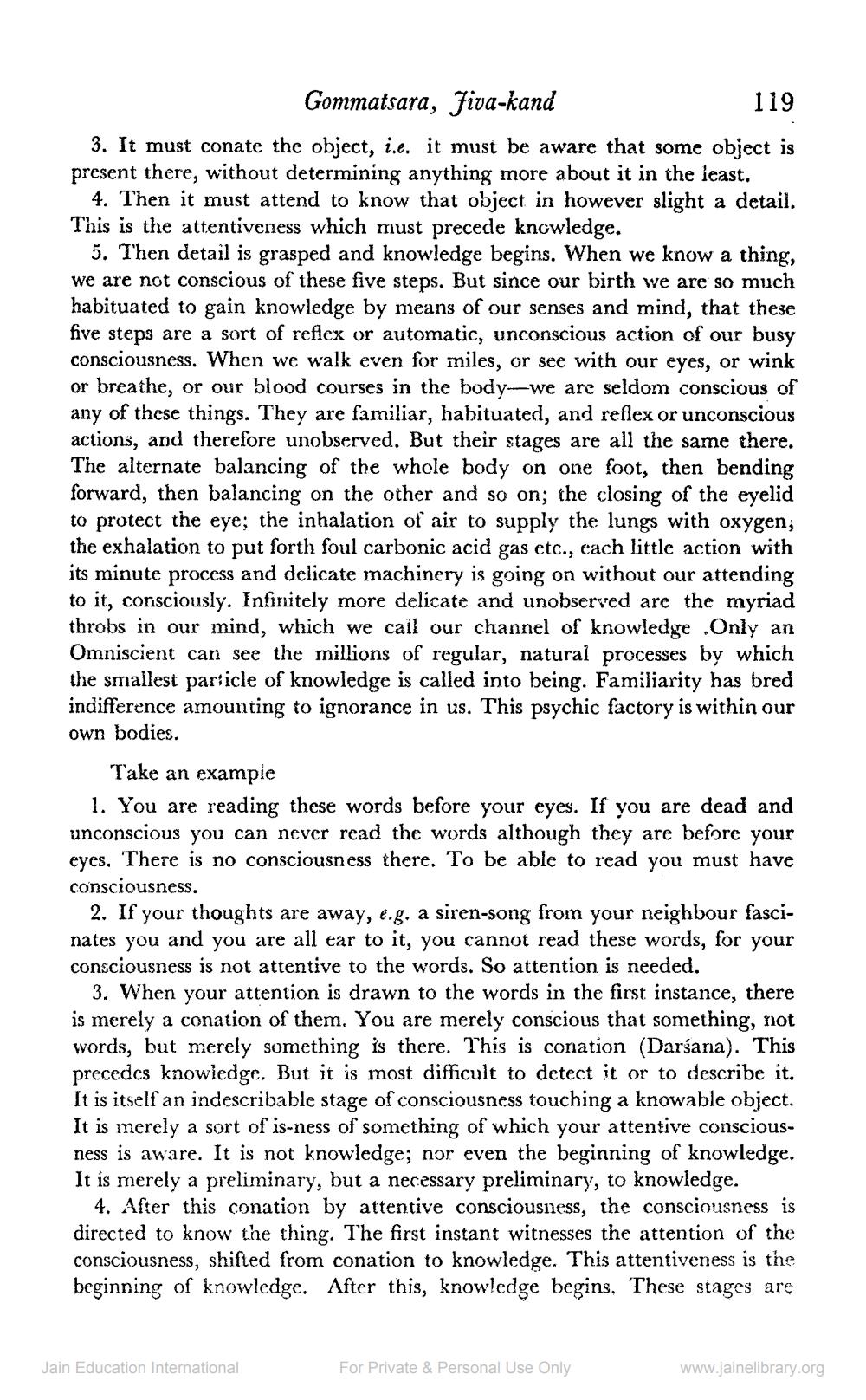________________
119
Gommatsara, Jiva-kand 3. It must conate the object, i.e. it must be aware that some object is present there, without determining anything more about it in the least.
4. Then it must attend to know that object in however slight a detail. This is the attentiveness which miust precede knowledge.
5. Then detail is grasped and knowledge begins. When we know a thing, we are not conscious of these five steps. But since our birth we are so much habituated to gain knowledge by means of our senses and mind, that these five steps are a sort of reflex or automatic, unconscious action of our busy consciousness. When we walk even for miles, or see with our eyes, or wink or breathe, or our blood courses in the body we are seldom conscious of any of these things. They are familiar, habituated, and reflex or unconscious actions, and therefore unobserved. But their stages are all the same there. The alternate balancing of the whole body on one foot, then bending forward, then balancing on the other and so on; the closing of the eyelid to protect the eye; the inhalation of air to supply the lungs with oxygen, the exhalation to put forth foul carbonic acid gas etc., each little action with its minute process and delicate machinery is going on without our attending to it, consciously. Infinitely more delicate and unobserved are the myriad throbs in our mind, which we cail our channel of knowledge .Only an Omniscient can see the millions of regular, natural processes by which the smallest particle of knowledge is called into being. Familiarity has bred indifference amounting to ignorance in us. This psychic factory is within our own bodies.
Take an example 1. You are reading these words before your eyes. If you are dead and unconscious you can never read the words although they are before your eyes. There is no consciousness there. To be able to read you must have consciousness.
2. If your thoughts are away, e.g. a siren-song from your neighbour fascinates you and you are all ear to it, you cannot read these words, for your consciousness is not attentive to the words. So attention is needed.
3. When your attention is drawn to the words in the first instance, there is merely a conation of them. You are merely conscious that something, not words, but merely something is there. This is conation (Darśana). This precedes knowledge. But it is most difficult to detect it or to describe it. It is itself an indescribable stage of consciousness touching a knowable object. It is merely a sort of is-ness of something of which your attentive consciousness is aware. It is not knowledge; nor even the beginning of knowledge. It is merely a preliminary, but a necessary preliminary, to knowledge.
4. After this conation by attentive consciousness, the consciousness is directed to know the thing. The first instant witnesses the attention of the consciousness, shifted from conation to knowledge. This attentiveness is the beginning of knowledge. After this, knowledge begins. These stages are
Jain Education International
For Private & Personal Use Only
www.jainelibrary.org




